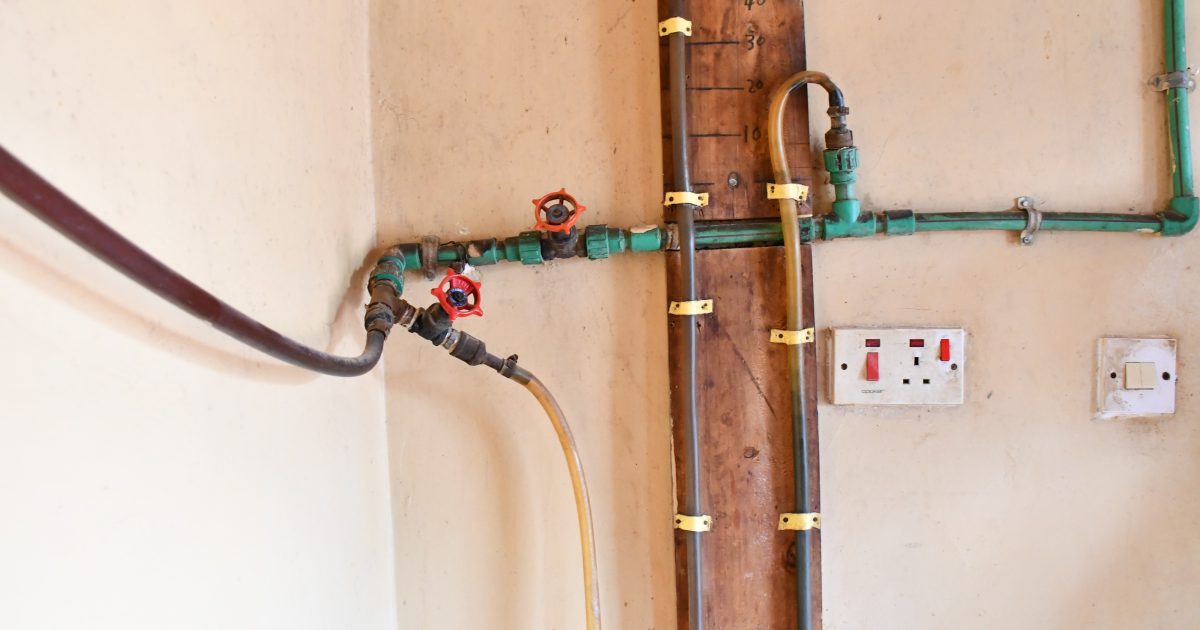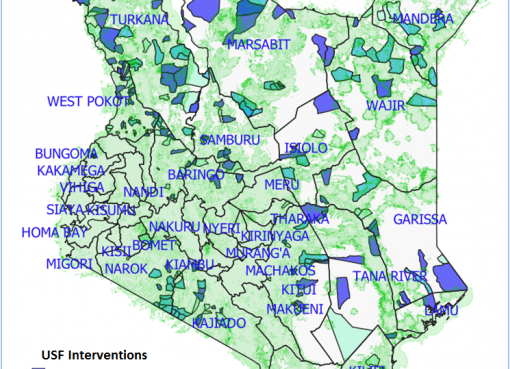Kiambu is an agriculture-based County that has adopted Biogas as a renewable source of energy. Biogas is affordable, reliable and environmentally friendly.
As one of the top five leading counties in dairy farming over the last 5 years, most farmers have taken advantage of dairy farming and further embraced the installation of biogas technology.
Promotion of biogas technology has been widely carried out in the humid and agriculturally rich areas of Kenya.
23 -year-old Mike Mumo from Mugumo, Ndugu lane Kiambu County, a designer, freelance journalist, entrepreneur and does farming on the side is among many Kiambu residents who have installed a balloon biogas plant.
A balloon biogas consists of a heat-sealed plastic or rubber bag (balloon), combining digester and gas-holder plant in one’s home
The 7-year-old biogas plant that was a vision of the late Mumo’s father has lived to serve the family with its main objective being to reduce the cost of fuel [gas] and electricity, the young man who currently is maintaining the plant told KNA
Mumo explained the process of biogas formation starting with the first step of pre-refilling and filling the digester.
“In this first stage you mix the dung and water at the ratio of 2:4 which consists of dung or potato and pineapple piles when smashed. This fastens the formation of gas. Then comes the fermentation process which takes place where substrates go into chambers (balloon) combining digester and gas holder,” he explained.
Mumo said the gas is then stored in the upper part of the balloon where both the inlet and outlet are attached directly to the skin of the balloon which in turn inflates once the gas pressure is more.
The last stage, he said, is the production of biogas where as a result of fermentation, biogas is produced inside the balloon. The gas includes methane, carbon dioxide and water and once the fermentation takes place, the waste products go through the outlet which are later used for farm manure,” he said.
Mumo notes that using biogas at home saves money for gas purchase, it also provides enough gas for not only cooking at home, but for lighting and heating water thus reducing one’s workload.
“Through the Biogas technology, the waste/ bio slurry we get from it has seen our farms do well especially in terms of food crops such as vegetables that we normally sell over the weekend, “ Mumo said and encouraged young people to embrace farming for some extra cash
Richard Mburu Kairu, a retired officer from Kiambu County Government council and also a resident in Mugumo has also installed biogas plant though his is a different type.
“I installed a fixed dome plant which has lived to serve my family for the last 13 years and it is good since it is constructed underground which saves in space”, he told KNA.
Fixed dome plant might be similar to a balloon plant only that it has a different mode of installation which consists of a mixing pit where the dung is mixed together with water, digester, gas holder, displacement pit and lastly the gas pipe which is connected to the cooker.
According to Kairu, the fixed dome plant is unique as one can be able to tell when the gas is almost finished with the help of a meter that is installed in one’s kitchen and can be monitored.
Biogas, he stated, has a lot of health benefits as it does not produce smoke therefore making work easier while cooking. My wife is elderly and is not able to use firewood anymore to cook,” he said.
Kairu who breeds chicks in his homestead says the bio gas has helped in saving cost of electricity when it comes to lighting up his chick houses that requires lighting to ensure they find food and water in the spaces.
“My retirement plan was to focus fully on dairy and poultry keeping and for sure biogas was a good investment and has come in handy, ” he said, calling on other people, especially farmers to embrace and install biogas.
Virginia Karanja, Kiambu Sub- County livestock production officer, told KNA that they have been sensitizing farmers in Kiambu Township, Ndumberi, Riabai and Ting’ang’a sub counties on the need of using the biogas .
“The small-scale farmers should not worry about Biogas installation in the name that they do not have enough livestock. Every farmer can install the plant depending on his /her capability. The smallest Biogas plant installation is 4m cubic where a farmer with one cow can also install,” she said.
Karanja explained that they have been training farmers on all aspects of production and value addition to reduce the cost of production on their farms and also link them up with the bio gas specialists.
“We have programs running through the Agriculture Sector Development Support Programme (ASDSP) that has been helping the farmers in cooperative societies,” he said.
Home Bio gas Kenya, a company based in Kiambu that installs bio gas in Kiambu, Murang’a, Meru and Embu said they have been assisting farmers who want to install biogas plants in their homes.
Miriam Mwangi, sales person in the company, said that most farmers might want to install a bio gas plant but do not know the specifications.
She explained that the company gives farmers tips and also visits their farms to guide them on how to go about it.
“When a farmer has an idea of having a biogas plant, he needs to have enough space as the Biogas bag takes 9m by 4m on the farm, access to water which will be required to mix with the dung on daily basis and a minimum of 3 cows or 5 pigs,” she explained.
According to Ms Mwangi, fully installed and proper Bio gas can cook for upto 5 hours but apart from that, the biofertilizer that the farmer gets from the waste can be used on the farms for maximum yields of their crops.
A farmer will require between Sh82, 500 to Sh100, 000 to install a bio gas at their home but Ms Mwangi said they have been working with farmers with partial payment plans of monthly installments as well as referring farmers to cooperatives that help them acquire loans.
She noted that the company’s service team is able to install the biogas plant for the farmer within a period of less than 5 hours once the farmer has met all the requirements.
“Majority of Kiambu residents have embraced the use of biogas with the help of Home Biogas Kenya having installed 85 percent of many homesteads.
The first biogas plant in Kenya was built in 1957 in a coffee farm which later led to over 160 biogas plants installation by the year 1980. Currently Biogas is being embraced by many households since the technology is a cost-effective investment if plants are properly constructed, effectively operated and well maintained.
By Fridah Chomba and Victor Muchiri





